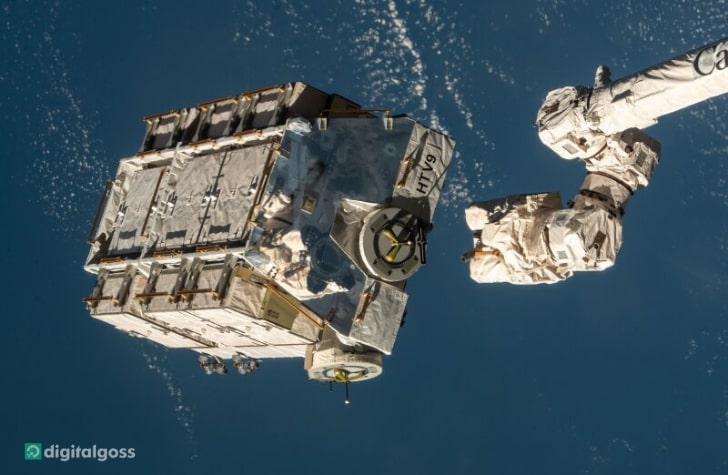In March, a piece of metal debris from the International Space Station (ISS) crashed through the roof of Alejandro Otero’s home in Naples, Florida. The debris, which was later identified as a 1.6-pound cylindrical object, created significant damage but fortunately did not cause any injuries. The Otero family is now seeking compensation from NASA, citing various damages including property damage, business interruption, and emotional distress.
NASA confirmed that the debris was part of a 5,800-pound cargo pallet released from the ISS in March 2021. This pallet contained old nickel hydride batteries, which NASA expected to burn up upon reentry into Earth’s atmosphere. However, a piece of the debris survived and made its way to the Otero family’s home, raising concerns about the risks associated with increasing space traffic and space debris.
The Otero family’s legal representative, Mica Nguyen Worthy, has filed a claim against NASA. The claim includes demands for compensation for non-insured property damage, business interruption, emotional and mental anguish, and costs for assistance from third parties. Worthy emphasized the potential severity of the incident, noting that a slight difference in the debris’s trajectory could have resulted in serious injury or fatality.
Worthy stated, “My clients are seeking adequate compensation to account for the stress and impact that this event had on their lives” . The family has requested more than $80,000 in damages, although the exact amount is not specified in the initial claim. NASA has six months to respond to the claim under the Federal Torts Claim Act.
The incident has broader implications for space law and liability. Under the Space Liability Convention, the “launching state” is liable for damages caused by its space objects. Worthy pointed out that if the debris had caused damage in another country, the U.S. would be absolutely liable. This case seeks to establish a precedent for handling similar incidents involving U.S. citizens and residents.
Mark Sundahl, a space law expert, mentioned that the legal framework is less clear when space debris lands on U.S. soil, making it a domestic issue . This ambiguity in domestic space law highlights the need for clear guidelines and accountability for space debris incidents within the U.S.
NASA has yet to respond to the claim. However, the agency acknowledged the incident in April, confirming the identity of the debris and reiterating its commitment to minimizing risks associated with space hardware reentry. NASA stated, “NASA remains committed to responsibly operating in low Earth orbit, and mitigating as much risk as possible to protect people on Earth when space hardware must be released” .
This incident underscores the growing challenges of managing space debris as the number of objects in low Earth orbit continues to increase. It also raises questions about the adequacy of current policies and procedures for handling space debris and protecting public safety.
The Otero family’s case against NASA is not just a quest for compensation but a critical test of legal responsibilities and protections related to space debris. As space activities expand, establishing clear and fair mechanisms for addressing such incidents becomes increasingly important. The outcome of this case could influence future policies and liability frameworks, shaping how space-faring nations and organizations manage the risks associated with space exploration and debris.

